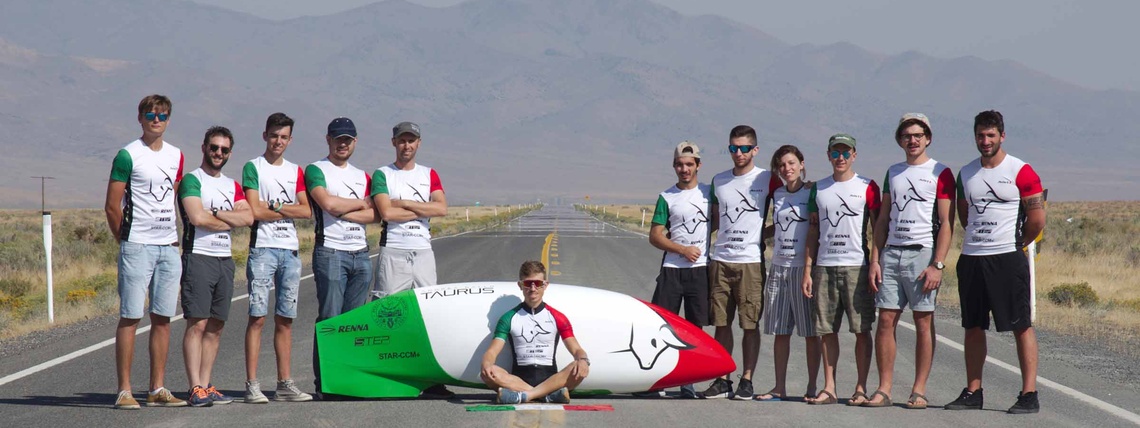The articles of the current edition are available on the new site.

Once again, an Italian prototype manages to hurtle at over 120 km/h in the pedal speed competition that sees teams from all over the world compete: the World Human Powered Speed Challenge 2017. An engineering and sports challenge at the same time that the Politecnico di Torino Policumbent Team faces for the third consecutive year and in which this year it came second in both the university team and absolute male category.
The competition, now in its 18th edition, was held from 11 to 16 September at Battle Mountain, a US town in North Nevada, on State Route R305: a straight line in the middle of the desert where pressure and temperature are ideal for testing these types of vehicles.
Under the guidance of cyclist and project leader Andrea Gallo and Technical Manager Paolo Baldissera, the new recumbent bicycle prototype also this year managed to achieve a very satisfactory result, reaching the speed of 122.32 km/h. A lengthy design period and minute attention to detail made it possible to create an efficient prototype capable of over 120 km/h with less than one overall horsepower, without the aid of any engine.
The prototype TAURUS, a name inspired by the home town of the Team, was highly acclaimed by the most experienced competitors for its innovative solutions: a composite hull with ultra-low aerodynamic resistance and an innovative shift cassette transmission patented by a number of Team members.
Andrea Gallo, protected by the fairing bearing the Italian flag, easily passed the qualifying stages, passing the finish line at 105 km/h compared to the 95 required. Despite the bad weather that characterised much of the week, Gallo then progressively improved his performance reaching a speed of 122.32 km/h, thus once again acquiring a place among the fastest men on the planet.
The Team's objectives remain the European and world record, which was not within the reach of this edition, due to both the bad weather conditions as well as the need to further refine and test the newly designed vehicle. The increase achieved with the previous vehicle, PulsaR, was approx. 10% from its debut in 2015 to the subsequent record of 2016: from this perspective, the result achieved this year with Taurus, in unfavourable conditions, represents a first step towards the objectives of the student team.
The Team is returning from the US and will exhibit Taurus to the public during the Researchers' Night on 29 September in Turin, while PulsaR will be on show from 22 to 24 September at the Spin Cycling Festival in Rome.